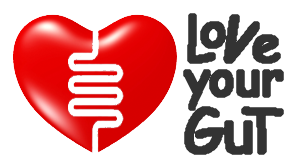
Dr. Dean Ornish, the founder of the Preventive Medicine Research Institute in Sausalito, California. Two studies that recently came out that talk about the role of dietary habits in COVID. The first one from BMJ Nutrition Prevention and Health, followed 3,000 frontline doctors and nurses across six countries. It's a particularly compelling study. I think people are really looking for, what else can I do that might also help me to stay well, or if I do get sick to get a milder version of it? They looked at almost 3,000 frontline health care workers who get exposed to COVID every day. And they found that those that were eating a healthy plant-based diet were 73% less likely to get moderate to severe COVID. Those following a pescatarian diet, a healthy plant-based diet with some fish, were 59% less likely. And equally amazing, those following a high animal protein, high fat-- Atkins, paleo, Keto-type diets-- were 400% more likely to get moderate to severe COVID. So we already know that a healthy plant-based diet has so many beneficial effects beyond COVID. But I think this is just the latest example of things that we can do ourselves to help enhance our immunity.
"Gut" followed 600,000 people in the US and London. These were scientists at Harvard School of Public Health, people like Dr. Walter Willett, and the King's College in London. And they looked at almost 600,000 people. And they found something similar, that those eating a healthy plant-based diet were 41% less likely to develop moderate to severe COVID. And also people who have chronic diseases, who are overweight, who have high blood pressure are more likely to be hospitalised from COVID. Just being obese, for example, can raise your risk of mortality by 300%. These simple lifestyle changes can make such a powerful difference. It's because they affect so many different parts of our underlying prpcesses, the biological mechanisms that affect our underlying health-- chronic inflammation, oxidative stress, changes in immune function with the microbiome, and so on. And these mechanisms, in turn, are directly influenced by what we eat, how we respond to stress, how much exercise we get, and how much love and support we have.
It doesn't just mean eating lettuce and kale. A plant-based diet is the way that most people ate worldwide until they had the prosperity to be able to eat animal protein as often as we do, and processed foods, and concentrated sweeteners, and so on. So it's mainly fruits, vegetables, whole grains, legumes, soy products, as close as possible to how they come in nature. I think there's a growing consensus that this is really the optimal way for most people to eat. Not only is it low in the disease-causing substances, but there are literally hundreds of thousands of protective substances in fruits and vegetables that-- phytochemicals, bioflavonoids, carotenoids, retinols, isoflavones, genistein, lycopene, on and on and on that have anti-cancer, anti-heart disease, and anti-aging properties.
People will say, it's too expensive. The food spoils if I don't eat it soon. Or they'll say, I don't like that. I don't like the taste of plant-based food. People say food is really something that's-- they view-- is designed to give them pleasure. And there's a role of food in that, and community. But at the same time, we're trying to talk about food as medicine, the properties that it has to help our immune systems, particularly when we're talking about COVID. A colleague of mine and I trained the St. Vincent de Paul homeless shelter in our program 20 years ago. Over 30,000 homeless people went through it. Obviously, you can spend more money if you want to eat truffles and really expensive things. But you can eat a very healthy plant-based diet for less than it costs you to get meat, especially now with inflation and the price of meat is rising. Number two, you can eat food that's delicious and nutritious.

